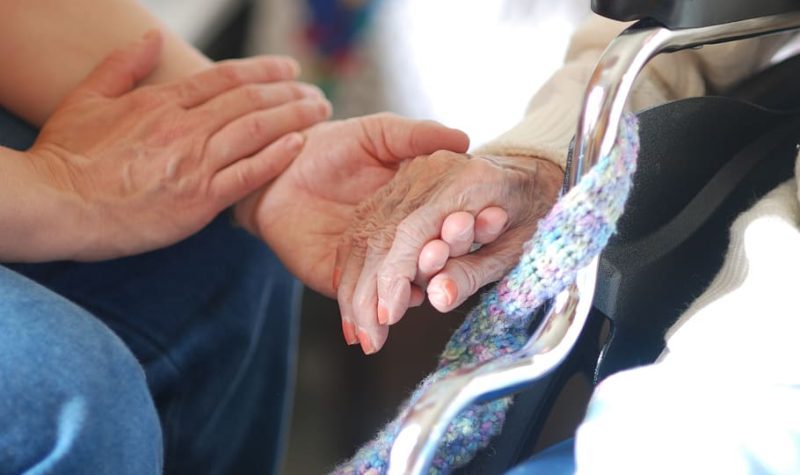Action Communautaire Lac-Brome (ACLB) - a non-profit organization that supports the quality of life in Brome Lake through the integration of health and social services - is seeking English-speaking caregivers of individuals living with a neurocognitive impairment to participate in the new “Coffee Break” program offered in partnership with the Societé Alzheimer Brome-Missisquoi-Haute Yamaska.
The goal with the Coffee Break program - free to Brome-Missisquoi residents - is to provide caregivers, whether that be a significant other, family members, or friend of a person with a neurocognitive impairment, with the opportunity to discuss and exchange their experiences with others in a safe and friendly space.
The Coffee Break program also focuses on providing participants with information in English and connecting them with bilingual services that can support these needs with the help of a facilitator from the Alzheimer’s Society and/or from the ACLB team.
“Basically, she directs them, advises them, and she counsels them to get the best possible services for the situation they are living [with]. And there is the exchange with other people that might have different levels of need, so it creates a supportive environment,” explained Marta Gubert Gomes, senior outreach worker for the ACLB. “(…) People get a coffee and they sit in a friendly environment with people that understand what they’re going through. There is a lot of group support and professional support in the activity.”
According to Gubert Gomes, it is important that English-speakers begin to take advantage of the Coffee Break program as the level of participation will dictate if it will move forward. The program also serves as a stepping stone for other services that could possibly be offered to the English-speaking community in the future.
“We worked really hard, myself and the Alzheimer’s Society, to provide what we feel is a need for the Anglophone community. For these programs to continue, it’s important that the Anglophone community participates in whatever we have going on that is for them,” noted Aubert Gomes. “..As people participate and we see the need, as they talk to counsellors and to the people from the Alzheimer’s Society for their different needs, then the programs can expand to accommodate those different needs. We establish programs that we think will be good for [people].”
Gubert Gomes and the Alzheimer’s Society are a part of an Advisory Committee that was formed in Brome Lake earlier this year to identify what new, and existing, services and programs could help fulfill the needs of English-speaking individuals in Brome-Missisquoi living with a cognitive impairment, and their caregiver.
“It was brought to our attention that there had already been services for older adults throughout the day centre in Brome Lake, but unfortunately they no longer have those services. We were also informed that there were no services for the English older adults with neurocognitive impairments and that the need was quite elevated,” said Caroline Hadlock, family and respite advisor for the Alzheimer’s Society, in a previous interview with CIDI.
With the help of its local partnehlpers, like ACLB, an English version of the Alzheimer’s Society's “Together for Fun!” program was launched, offering adapted recreational activities for individuals at the early stages of their disease and their caregivers, and more recently the Coffee Break to fill in the gap for the lack of resources.
“For us, it really is a priority to work with the Anglophone community because there is a Coffee Break program in Cowansville, but it’s more Francophone. That’s why we, along with the Alzheimer’s Society, developed this program in English,” noted Gubert Gomes.
As the senior outreach worker for the municipality of Brome Lake, Gubert Gomes explained that through her work she discovered a whole other “face of vulnerable seniors” - those living with neurocognitive impairments. It’s for this reason that she wants to see support programs like the Coffee Break continue to thrive for the sake of the English-speaking community.
“To be able to have services that can answer your need in your language, just the basic communication is important. (…) The Alzheimer’s Society recognizes the need to serve the Anglophone community better and to be more available. They’ve taken the steps to hire a perfectly bilingual counsellor and the Town of Brome Lake has opened up a lot of areas at the community to run their activities,” noted Gubert Gomes. “(…) It (participation) shows the Alzheimer’s Society that yes, English programs are important, English programs for people with cognitive issues are important, and it’s a step.”
Gubert Gomes encourages anyone who is interested in learning more about the Coffee Break program to reach out to ACLB or the Alzheimer’s Society even if they are uncertain if the program is right for them.
“If your loved one is having memory troubles and it’s affecting your quality of life, it’s certainly in your interest to come and participate so that you can find out about these different issues, problems, and these services that are available to help you,” she said.
For more information, call Gubert Gomes at 450-204-9423 or the Alzheimer’s Society at (450) 777-3363.
Listen to the full interview with Gomes below:


